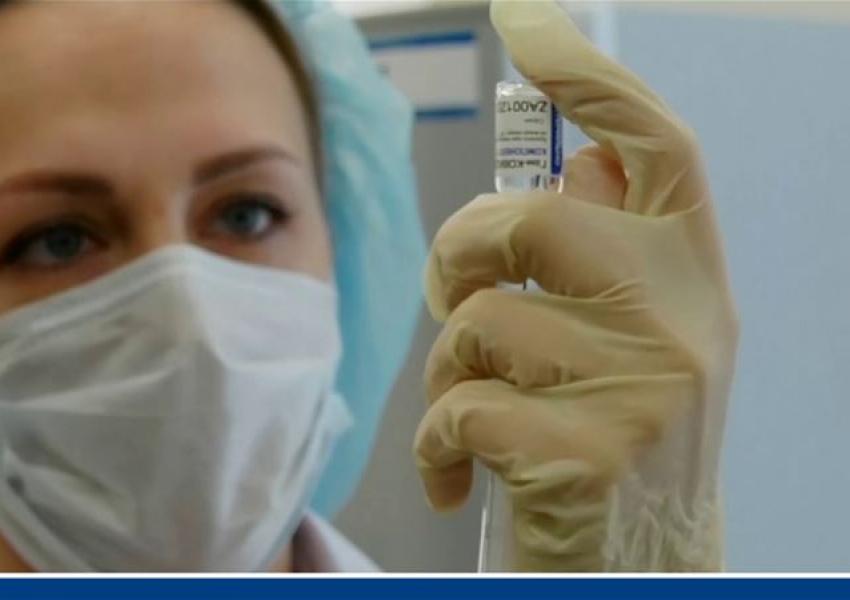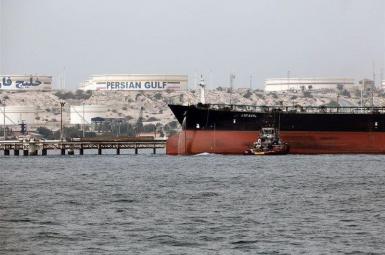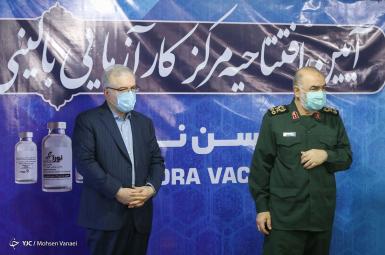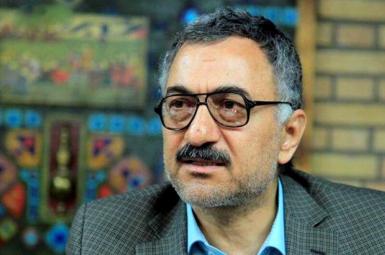
Iran's Claim Of US Sanctions Preventing Covid Vaccine Purchase Doubtful
Iran’s Central Bank Governor Abdolnaser Hemmati on Monday claimed on Instagram that purchasing the Covid-19 vaccine, Covax, through the World Health Organization was being hampered by problems transferring payments due to United States sanctions.
“Every path we have tried for making the payment has been blocked due to the inhumane sanctions of the United States and the requirement to get a permit from OFAC [the Office of Foreign Assets Control in the US Treasury Department],” Hemmati wrote. He said that US claims over humanitarian items being exempted from sanctions were “a lie.”
Hemmati wrote that the health ministry was investigating indirect ways to source the vaccine as Iran sought alternative paths for making payments.
In contradiction to Hemmati, Naser Riahi, Chairman of the Medical Supplies Importers Union, on December 1 denied any problems paying for the Covid vaccine. According to Riahi, 30 percent of all imported medicine still originated in the US, and he assured Iranians that sanctions would not stop imports of vaccines from Moderna and Pfizer, the two leading companies on Covid vaccination.
“During this time of sanctions…we import 100 million euros of medicine and medical raw material each month, and if we add equipment, it reaches around 150 million euros a month,” he added. “We won’t have any problem putting up the money for the vaccine. Of course, it would be better if we could barter the cost of the vaccine with our frozen money.”
Riahi’s comment refers to Iranian money – including revenue from oil sales – that foreign banks are refusing to send to Tehran in fear of US action against them, thereby depriving Iran of foreign currency needed to buy imports.
The head of Iran’s medical association, Abbas Aghazadeh on Monday urged the government not to ignore the need to import Covid vaccines. In a letter to vice-president Es’haq Jahangiri, Aghazadeh argued that the development of an Iranian vaccine will take much more time and in the meantime “to save millions of lives” vaccination is needed. In a veiled reference to the Islamic Republic’s ideological opposition to the United States, Aghazadeh in his letter said the authorities have to put aside “cultural, political and ideological” considerations in obtaining the vaccine.
Iran has been claiming for months that its vaccine development is close to completion but so far, no human testing has taken place. It is possible that Iran is planning to import Chinese or Russian vaccines and claiming it was developed ‘jointly’. Officials have whispered about the Iranian vaccine “being similar” to the Russian and Chinese prototypes.
Aghazadeh also pointed out that there is no allocation in next year’s proposed budget for buying vaccines and urged to include the necessary appropraition.
Aghazadeh's and Riahi's arguments might point to the possibility that Iran wants to use its blocked funds for the vaccine, otherwise paying for it from its available funds won’t be a problem, just like the regular purchases of other medications.
Iran produces the bulk of its medicines, but many use imported components. Human Right Watch has argued US sanctions impede humanitarian trade and have weakened the government response to the coronavirus pandemic.








